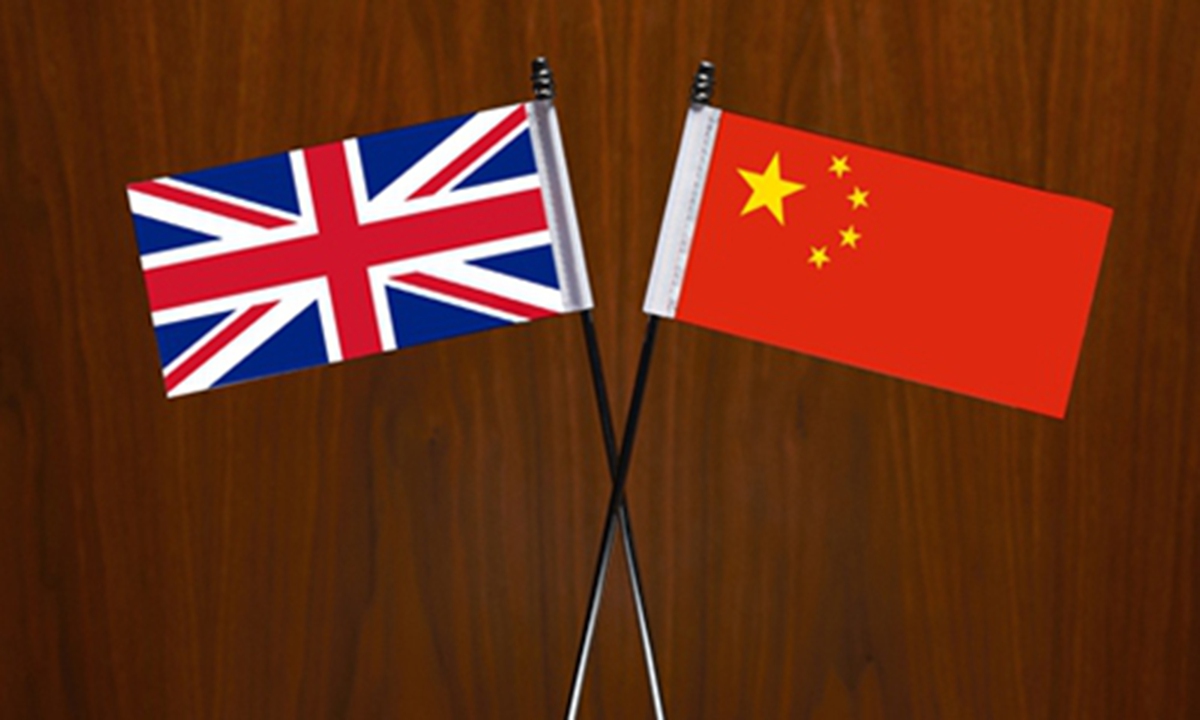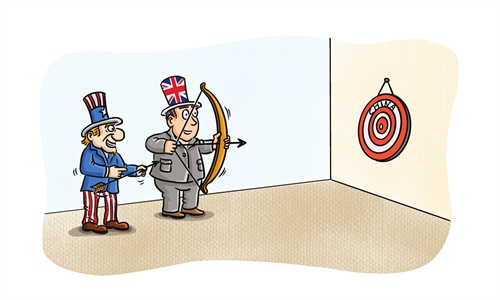Fundamental basis of ‘golden era’ between China and UK has disappeared: British scholar
‘Golden era’ of China-UK relations almost over: British scholar

Photo: GT
With the UK's actions against China including interfering with China's internal affairs and revoking Chinese media outlet CGTN's license in the country, the fundamental basis of the "golden era" between China and the UK that the two had enjoyed for the past six years has disappeared, a British scholar told the Global Times.
On China's side, the conditions for win-win relations with the UK are permanent. On the UK's side, it was a more pragmatic, but nevertheless firm, conclusion by former prime minister Cameron that the UK was the best gateway for China's companies into the EU and that the UK would benefit from this - a policy which had serious chance of success, said John Ross, a senior researcher of the Chongyang Institute for Financial Studies, Renmin University of China.
Ross, who is also the former director of economic and business policy for the mayor of London, told the Global Times that these two positions were the basis for the "golden era" of UK-China relations.
However, with Brexit, the UK embarked on a course of more strict subordination to the US. Therefore, the UK will only embark on friendly relations with the US within a framework set by the US. This is clearly not a basis for a "golden age," he noted.
Meanwhile, media hostility to China has led to an increase in anti-China sentiment as a recent poll showed that the percentage of the population regarding China as a "critical threat" to the UK rose from 30 percent in 2020 to 41 percent in 2021.
Ross believes that "whatever is the state of public opinion, the fundamental parameters of British policy will be determined in Washington, not London."
Asked about whether this view represents the mainstream view of British society, Ross said there are several ways the word "mainstream" can be interpreted. If it means the majority of public opinion this is chiefly controlled by the mass media.
This mass media today in the UK is engaged in a frenzy of anti-China propaganda - including on Xinjiang, Hong Kong affairs and etc. This mass media is, of course, careful to conceal that it is carrying out a policy determined in Washington so it may be said in that sense the "mainstream" does not understand policy is dictated by Washington.
If by mainstream it is meant British business, then it is uninterested in whether Britain's policy is determined in London, Washington or the EU. It is primarily concerned with whether business with China is profitable, he said.
Ross noted that Brexit was a decisive strategic decision by the British government to subordinate itself still further to the US. Therefore, the fundamental parameters of UK's policy to China are made in Washington, not in London. If the US adopts a more objective and friendly relation to China, the UK will also do so. If the US remains or becomes hostile to China, then the UK will do so also.
Naturally such a framework is damaging to the UK - removing Huawei from its 5G system, for example, means it will be delivered later and be more expensive. As Britain's economic situation is weak Britain will probably seek good relations with China on any area which is not forbidden by the US. But the UK will not go against any major policy which the US considers to be fundamental.

